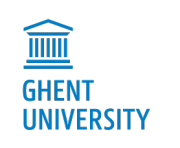General information
The Mares Conference 2016 will commence with two days of MARES Consortium / EuroMarine Network high level training workshops on the 1st and 2nd February 2016 aimed at students, doctoral candidates, postdoctoral fellows and researchers. Two training workshop packages will be offered: the ‘Effective Outreach Workshop’ or ‘Research Tools Workshop’. This workshop is part of the Effective Outreach Workshop.
Media skills for researchers
Does the media scare you? Do you think that journalists just trying to make you look silly? Are newspapers and radio or TV the best way to tell the public about your findings and your work? Could you give a good interview for print, radio or TV? Are journalists friendly helpful people or should you avoid talking to them at all costs? Will a good story about new exciting science just find its way into the media because is it excites you? Do you have to “dumb–down” your science in order to communicate with a general audience? Most people have very strong opinions about the media in general but there are many myths and misconceptions surrounding the roles, job and ambitions of the media. However if you know how the news industry works you can use it to effectively publicise important aspects of your work. But if you are innocent of the ways of the media you can make a bad mistake. On this course you will learn how the media industry works; how the media differ in their approach and their requirements; how you can make your work accessible to a wider audience; how you can get your story into the public eye without removing vital scientific detail – in other words how not to “dumb it down”. Main topics are:
- The media and how it works
- Have you got a story?
- What is a press release and how does is work?
- The art of good “story telling”.
- Print, broadcast or online?
- Be prepared! An interview next week or an immediate quote.
- Controlling an interview.
- If you think radio is hard how about TV?
Content
The highlighted icons, represent the fields of education (in compliance with ISCED Classification) engaged during this course/programme.
Venue
Olhão, Portugal
Real Marina Hotel
Av. 5 de Outubro
8700-307 Olhão
Portugal
Application
Click here to apply: http://www.maresconference.eu/training
Cost:
<p>75€</p>
Application Procedure:
Registration for the training workshops is open to all and is separate from the MARES conference registration.
Qualification
The Mares Conference 2016 will commence with two days of MARES Consortium / EuroMarine Network high level training workshops on the 1st and 2nd February 2016 aimed at students, doctoral candidates, postdoctoral fellows and researchers. Two training workshop packages will be offered: the ‘Effective Outreach Workshop’ or ‘Research Tools Workshop’. This workshop is part of the Effective Outreach Workshop.
Media skills for researchers
Does the media scare you? Do you think that journalists just trying to make you look silly? Are newspapers and radio or TV the best way to tell the public about your findings and your work? Could you give a good interview for print, radio or TV? Are journalists friendly helpful people or should you avoid talking to them at all costs? Will a good story about new exciting science just find its way into the media because is it excites you? Do you have to “dumb–down” your science in order to communicate with a general audience? Most people have very strong opinions about the media in general but there are many myths and misconceptions surrounding the roles, job and ambitions of the media. However if you know how the news industry works you can use it to effectively publicise important aspects of your work. But if you are innocent of the ways of the media you can make a bad mistake. On this course you will learn how the media industry works; how the media differ in their approach and their requirements; how you can make your work accessible to a wider audience; how you can get your story into the public eye without removing vital scientific detail – in other words how not to “dumb it down”. Main topics are:
- The media and how it works
- Have you got a story?
- What is a press release and how does is work?
- The art of good “story telling”.
- Print, broadcast or online?
- Be prepared! An interview next week or an immediate quote.
- Controlling an interview.
- If you think radio is hard how about TV?
Registration for the training workshops is open to all and is separate from the MARES conference registration.

 Universiteit Gent (Ghent University)
Universiteit Gent (Ghent University)

